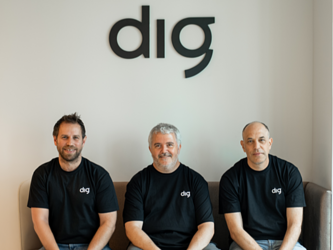Revelation reviewed
Online qualitative research does not need to be a pale imitation of conventional face-to-face groups and depths, and it is better not to try. Revelation is a piece of web-based software that provides a rich environment for qualitative researchers to design internet-age research projects that play to the strengths of the medium. Respondents tend to welcome the convenience of being able to participate whenever they choose from the comfort of their own home or office. Researchers and clients may feel the same but, more importantly, by moving beyond the temporal and spatial constraint of the single-point-in-time group, they may find they get richer and more considered insights.
Under the influence
A Revelation group can take place over several days, or even weeks, with new questions or exercises being presented on a daily basis. Participants can be encouraged to contribute much more in the way of content, taking the focus group into the realms of auto-ethnography and co-creation. Revelation allows you to decide, for each question you ask, whether the responses are to be visible to others – before they respond (“influenced”), only after they respond (“uninfluenced”) or even withheld from all but the moderator and any client observers (“private”).
The way the software works as a researcher, is that you log into your account on the Revelation server and create a series of activities for your respondents to take, building different tasks from a toolbox of stimuli. You can cue them exercises to start on different days, and if you are planning some kind of diary activity, an exercise can be made to repeat. You can build an exercise very simply from a toolbox of components.
The option’s yours
There’s everything you would expect there, from open questions and closed, pre-coded questions, places to provide descriptions, welcome texts and explanations, cues to present any multi-media stimulus material you may wish to display and questions where you request an upload of a photo, document or even a video. You could simply present a series of open questions each day or you could lead your participant through creating an daily blog illustrated with photos they have taken of their actual experiences. Either way, you can also probe away to your heart’s content, and even change the direction of the research part way through.
The software also lets you manage your participants, send out initial invites and get them to fill out a short profile survey, which you can customise. You can also import participant lists from Excel. Projects are divided into segments, which you can use in multiple ways: to divide your participants into smaller subgroups, assign them to different moderators or to assign different tasks to different subgroups.
The respondent interface presents some very simple tabbed areas to view – things to do, things already done and direct messages to or from the moderator. This and all the interfaces have a very pleasing “Facebook era” design which make them pretty much self-explanatory.
As a moderator, is very easy to track participation, view all the new content, add probes and send email reminders or messages to participants that don’t seem to be logging in. You too will get emails whenever anyone completes one of your tasks – if you are running several large groups, their can be a tidal wave of emails coming your way.
Revelation also allows you to conduct discussion groups online. Here, I found the software to be a little less flexible. It forces you to divide each discussion topic into a series of different tasks. You follow up any point with a probe to that individual, but the tool currently lacks the ability to ask follow-up questions of the group as a whole, or simply open out a probe to everyone without setting up an entirely new discussion task.
Conclusion
In the current version, there are some other minor niggles, such as not being able to personalise the welcome email, and it not being very easy to output and analyse or present the answers to closed questions. However, in the piece of research I used this for (a group among six IT professionals), I was astonished with the quality and clarity of the responses I got. Going online clearly cuts out the waffle, as respondents draft their responses carefully, and consider what they are saying. The result is data that is relatively easy to analyse with very little padding to cut away.
It would be wrong to consider this method a replacement for all groups or depths, but it does provide a credible alternative, and this software certainly encourages creativity in the actual research design.
?Claire Dally is a research manager at GfK Automotive in London, and has recently completed a multi-country study of over 190 people across 15 participant groups using Revelation. She describes her experiences: “Revelation is very intuitive, easy to use and has a visually appealing interface. We took advantage of the Helping Hands package, where we were given a dedicated member of the Revelation team to guide us through this multi-market project and set up some of the scripts. They were extremely supportive throughout the whole process. We also used their translation service and found the quality of the translation was excellent. “A transcript created during a Revelation session will often be much longer than that of a focus group, because respondents generally have more time to consider their answers and to write down their opinions in detail. With online qual I find you need to recruit double the number of respondents you actually need. There are a number of reasons why you lose people: sometimes they are not available during the whole fieldwork session; others may lose interest along the way. “You do lack some of the rapport you gain face-to-face. Participants log on at different times, so you don’t necessarily get the chance to probe on things straight away, and therefore you can lose momentum. However, there are ways of building rapport; you need to invest some time in the start of the fieldwork warming up respondents, and making sure you keep on top of each person’s response, so that they feel someone is reading their comments. Participants can also upload photographs or videos to illustrate their ideas. “Clients find the software easy to use too. They are able to log on as observers, watch comments being made in real time and suggest probes via the moderator. This means that clients feel really involved in the moderation process and that all of their questions are being addressed. However, Revelation is not suitable for all types of projects. If your client wants participants to view confidential stimuli, you have no guarantee that any material tested is not screen grabbed, copied down or viewed by others. “Participants also find the experience very positive too; they are able to log on at a time suitable for them, and many have commented about how much they have enjoyed taking part. You can be slightly less structured in your approach, allowing the topic guide to evolve over the fieldwork session, rather than relying on a pre-determined list of questions. New questions can be loaded up on a daily basis if required. “It is a cost-effective way of running online qual. You can bring together participants from different locations without needing them to be in one place at the same time. For less than the price of a UK focus group of eight respondents you could run a Revelation session of around 20 participants. Our clients are becoming increasingly interested in online qual and we believe that this interest will only become stronger in the future. We’ve been very happy with this software and what you can get out of it.”
Client perspective: Claire Dally, GfK Automotive, London
The verdict: Revelation
Online qualitative research environment for asynchronous or bulletin-board style depth interviewing, discussions and auto-ethnography, allowing research to take place over several days or even weeks. No special software or plug-in is required to participate.
Ease of use: 5 out of 5
Cross-platform compatibility: 4 out of 5
Value for money: 4 out of 5
Cost
Single project licences start at $1,500. Discounts available for larger volumes, annual licenses and longer projects ( 3 months+). Helping Hands project support and translations are costed on a per-project basis.
Pros
Cons
Further info
revelationglobal.com

We hope you enjoyed this article.
Research Live is published by MRS.
The Market Research Society (MRS) exists to promote and protect the research sector, showcasing how research delivers impact for businesses and government.
Members of MRS enjoy many benefits including tailoured policy guidance, discounts on training and conferences, and access to member-only content.
For example, there's an archive of winning case studies from over a decade of MRS Awards.
Find out more about the benefits of joining MRS here.













0 Comments